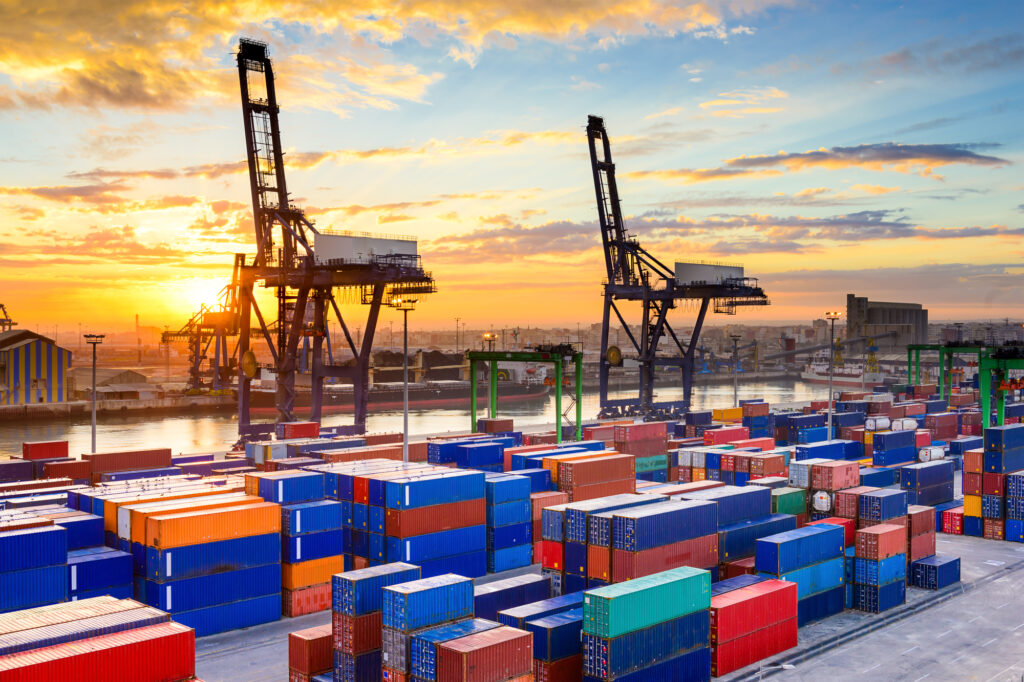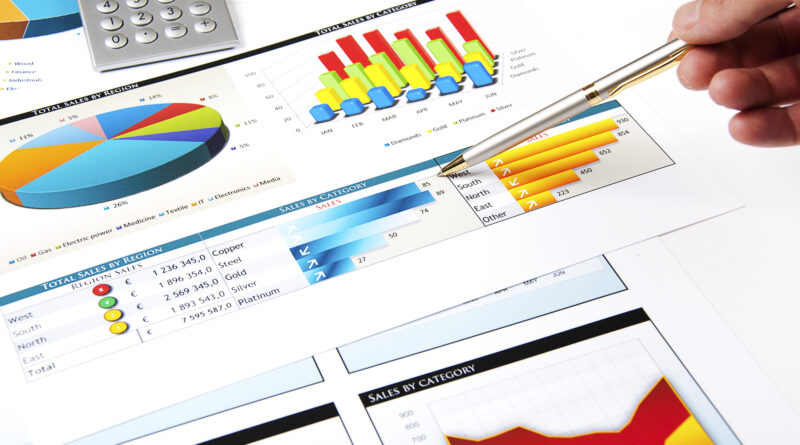5 important types of Macro events for Forex traders
Five of the most important macroeconomic events that can impact the foreign exchange (forex) market:
- Interest rate decisions: Central banks periodically announce changes to their benchmark interest rates, and these decisions can greatly impact currency exchange rates. Higher interest rates tend to attract foreign investment and can cause a currency to appreciate, while lower interest rates can result in capital outflows and a depreciation of the currency.
- Gross Domestic Product (GDP) reports: The GDP is a measure of a country’s overall economic output and is closely watched by forex traders. Positive GDP growth typically leads to a strengthening of the currency, while weak or negative GDP figures can lead to a sell-off.
- Inflation reports: Inflation is a key indicator of a country’s economic health and can impact interest rate decisions. High inflation can lead to lower currency values, as it erodes purchasing power, while low inflation can be seen as a sign of a strong economy and may lead to a currency appreciation.
- Political events: Political events, such as elections, government changes, and policy decisions, can all impact currency exchange rates. For example, a shift in a country’s political landscape can lead to changes in its monetary or fiscal policies, which can in turn impact the value of its currency.
- Trade balances: A country’s trade balance, or the difference between its exports and imports, can impact its currency exchange rate. A large trade deficit, where a country is importing more goods and services than it is exporting, can lead to a weaker currency, while a trade surplus can have the opposite effect.
It’s worth noting that these events can interact with each other and have different levels of impact depending on a variety of factors, such as the state of the global economy, market sentiment, and the specific country or currency in question.
Interest rate decisions

Interest rate decisions by central banks are one of the most important factors that can impact the foreign exchange (forex) market. Understanding how interest rates work and how they can impact currency exchange rates can be useful for traders who want to make informed decisions about their trades.
Here’s what you need to know about interest rate decisions and their impact on the forex market:
- What are interest rates: Interest rates are the cost of borrowing money, set by a central bank such as the Federal Reserve in the United States or the European Central Bank in Europe. Central banks use interest rates as a tool to manage their country’s economy by controlling the money supply and demand for credit.
- How interest rates impact forex: When a central bank raises its interest rates, it tends to attract foreign investment, as investors seek to earn a higher return on their capital. This increased demand for the currency can cause its value to rise relative to other currencies, leading to appreciation. On the other hand, when a central bank lowers its interest rates, it can lead to capital outflows and a depreciation of the currency.
- Interest rate announcements: Central banks typically announce their interest rate decisions at scheduled meetings, which are closely watched by the financial markets. These announcements can cause significant volatility in the forex market, as traders react to the news and adjust their positions.
- Market expectations: The forex market can also be impacted by expectations about future interest rate decisions. If traders believe that a central bank is likely to raise interest rates in the future, they may start buying the currency in advance, which can cause its value to rise even before the interest rate announcement.
- Other factors: It’s important to keep in mind that interest rate decisions are just one of many factors that can impact the forex market. Other macroeconomic events, such as GDP reports, inflation, and political events, can also play a role in determining currency exchange rates.
In conclusion, understanding interest rate decisions and their impact on the forex market is a crucial part of becoming a successful forex trader. By following interest rate announcements and keeping an eye on market expectations, you can make informed decisions about your trades and potentially take advantage of opportunities in the market.
More about Interest Rates
Interest rates are the cost of borrowing money, set by central banks such as the Federal Reserve in the United States or the European Central Bank in Europe. They are used as a tool by central banks to manage the economy by controlling the supply and demand for credit.
When you borrow money from a bank, you are charged an interest rate, which is a percentage of the amount you borrowed. The interest rate reflects the cost of borrowing the money, and it is typically paid by the borrower in the form of interest over time. For example, if you borrow $100 at an interest rate of 5% for one year, you would owe the lender $105 at the end of the year.
Interest rates are also used as a tool to manage the economy. Central banks can raise or lower interest rates to control the money supply and influence consumer spending and borrowing. For example, if the economy is growing too quickly and inflation is starting to rise, a central bank may raise interest rates to slow down borrowing and spending. On the other hand, if the economy is slowing down, a central bank may lower interest rates to encourage borrowing and spending.
Interest rates also play an important role in the forex market. When a central bank raises interest rates, it tends to attract foreign investment, as investors seek to earn a higher return on their capital. This increased demand for the currency can cause its value to rise relative to other currencies, leading to appreciation. On the other hand, when a central bank lowers interest rates, it can lead to capital outflows and a depreciation of the currency.
In summary, interest rates are a crucial tool for central banks to manage the economy and a key factor for forex traders to consider when making their trading decisions.
Details on how interest rates impact forex
Interest rates are a major factor that can impact the foreign exchange (forex) market. When a central bank changes its interest rate, it can have a significant effect on the value of its currency relative to other currencies.
Here’s how interest rates impact forex:
- Interest rate differentials: The forex market is largely driven by interest rate differentials between two currencies. If the interest rate in one country is higher than in another (as fx. the case has been in the US vs. Japan), investors may flock to the higher-yielding currency, leading to increased demand and a stronger currency. This can cause the currency’s exchange rate to appreciate relative to other currencies. On the other hand, if the interest rate in one country is lower than in another, it can lead to a decline in demand for that currency and a weaker exchange rate.
- Capital flows: Interest rate changes can also impact capital flows into and out of a country. Higher interest rates can attract foreign investment, as investors seek to earn a higher return on their capital. This increased demand for the currency can cause its value to rise relative to other currencies. On the other hand, lower interest rates can lead to capital outflows and a depreciation of the currency.
- Inflation expectations: Changes in interest rates can also impact inflation expectations. Higher interest rates can help to curb inflation by reducing borrowing and spending, while lower interest rates can encourage borrowing and spending, potentially leading to higher inflation. Inflation expectations can impact the exchange rate, as traders factor in the expected rate of inflation when determining the value of a currency.
- Market sentiment: The forex market can also be impacted by market sentiment, which can be influenced by interest rate decisions. If traders have a positive outlook on a currency, they may be more likely to buy it, even if the interest rate is lower, while a negative outlook can cause traders to sell, even if the interest rate is higher.
In conclusion, interest rates play a crucial role in the forex market, as they can impact currency exchange rates through interest rate differentials, capital flows, inflation expectations, and market sentiment. Understanding how interest rates work and how they can impact the forex market is an important part of becoming a successful forex trader.
GDP reports

Gross Domestic Product (GDP) reports are an important economic indicator that provides information about the overall health of an economy. They measure the value of all goods and services produced within a country’s borders in a given period of time, usually a quarter or a year.
Here’s how you can find and understand GDP reports:
- Where to find them: GDP reports are usually released by a country’s central statistical agency (in the US fx. the Bureau of Economic Analysis releases GDP reports) or central bank. You can find them on the agency’s website or through financial news sources, such as Bloomberg or Reuters.
- What to look for: GDP reports typically include information on the overall growth rate of the economy, as well as details on various components of GDP, such as consumer spending, investment, and government spending.
- How to interpret the data: To understand GDP reports, it’s important to look at the growth rate of the economy, which is the percentage change in GDP from the previous quarter or year. A positive growth rate indicates that the economy is expanding, while a negative growth rate indicates a contraction.
It’s also important to look at the various components of GDP, as they can provide insights into where the growth is coming from and what is driving the economy. For example, if consumer spending is driving the growth, it may indicate a strong and confident consumer sector, while if investment is driving the growth, it may indicate a strong business sector.
- Seasonal adjustments: GDP reports are often adjusted for seasonal factors, such as holidays and weather patterns, to provide a more accurate picture of the underlying growth rate of the economy. Be sure to look at both the seasonally adjusted and unadjusted data to get a complete picture of the economy.
- Historical comparisons: Comparing the current GDP report to previous reports can provide insights into the direction of the economy over time. If the current report shows a lower growth rate than the previous quarter or year, it may indicate a slowdown in the economy, while if the current report shows a higher growth rate, it may indicate an acceleration.
In conclusion, GDP reports are a valuable tool for understanding the overall health of an economy. By looking at the growth rate and the various components of GDP, you can gain insights into where the growth is coming from and what is driving the economy.
Inflation reports

Inflation reports are an important economic indicator that can have a significant impact on the foreign exchange (forex) market. Inflation refers to the general increase in prices for goods and services over time and is typically measured by a basket of consumer goods and services.
Here’s what you need to know about inflation reports when trading forex:
- Inflation and interest rates: Inflation and interest rates are closely related, as central banks often adjust interest rates to maintain price stability and control inflation. Higher inflation can lead to higher interest rates, as central banks seek to curb inflation by making borrowing more expensive. On the other hand, lower inflation can lead to lower interest rates, as central banks seek to stimulate the economy by making borrowing cheaper.
- Inflation expectations: Inflation reports can impact inflation expectations, which in turn can impact the forex market. If inflation is expected to rise, it can lead to increased demand for the currency and a stronger exchange rate, as traders factor in the expected rate of inflation when determining the value of the currency. On the other hand, if inflation is expected to decline, it can lead to a decline in demand for the currency and a weaker exchange rate.
- Market sentiment: Inflation reports can also impact market sentiment, which can be influenced by inflation expectations. If traders have a positive outlook on a currency, they may be more likely to buy it, even if inflation is rising, while a negative outlook can cause traders to sell, even if inflation is declining.
- Where to find them: Inflation reports are typically released by a country’s central statistical agency or central bank. You can find them on the agency’s website or through financial news sources, such as Bloomberg or Reuters.
- How to interpret the data: To understand inflation reports, it’s important to look at the overall rate of inflation, which is the percentage change in the price of the basket of consumer goods and services. It’s also important to look at the various components of inflation, such as food and energy prices, as they can provide insights into which sectors are driving the inflation.
In conclusion, inflation reports are an important economic indicator that can impact the forex market through their impact on interest rates, inflation expectations, and market sentiment. Understanding inflation and its impact on the forex market is an important part of becoming a successful forex trader.
Political events

Political events can have a significant impact on the foreign exchange (forex) market as they can create uncertainty and affect investor sentiment. Some political events that are known to have a large impact on the forex market include:
- Elections: National elections can have a big impact on the forex market, as the outcome of the election can determine the direction of economic and monetary policies. For example, if a political party that is seen as pro-business wins an election, it may lead to an increase in investor confidence and a stronger currency. On the other hand, if a political party that is seen as anti-business wins, it may lead to a decline in investor confidence and a weaker currency.
- Political Crises: Political crises, such as a sudden change in government, a military coup, or civil unrest, can create uncertainty and disrupt financial markets. This can lead to a decline in investor confidence and a weaker currency.
- Trade negotiations and agreements: International trade negotiations and agreements can have a significant impact on the forex market, as they can affect the flow of goods and services between countries and impact economic growth. For example, if a country successfully negotiates a trade agreement with a major trading partner, it may lead to increased trade and a stronger currency, while a failed negotiation can lead to a decline in trade and a weaker currency.
- Monetary policy decisions: Central bank monetary policy decisions, such as changes to interest rates, can also have a significant impact on the forex market. For example, if a central bank raises interest rates, it can lead to a stronger currency as the cost of borrowing in the country increases, while a decrease in interest rates can lead to a weaker currency as the cost of borrowing decreases.
In conclusion, political events can have a significant impact on the forex market as they can create uncertainty, affect investor sentiment, and impact economic policies and growth. It is important for forex traders to keep an eye on political developments and understand how they can impact the forex market.
Trade balances

Trade balances refer to the difference between a country’s exports and imports. A positive trade balance, also known as a trade surplus, occurs when a country exports more goods and services than it imports, while a negative trade balance, also known as a trade deficit, occurs when a country imports more goods and services than it exports.
Here’s what you need to know about trade balances and their impact on the foreign exchange (forex) market:
- Impact on the economy: A trade surplus can be a sign of a strong and competitive domestic economy, while a trade deficit can indicate that a country is relying on imports and may be facing economic challenges.
- Impact on the currency: Trade balances can have a direct impact on a country’s currency as they can affect demand for the currency. A trade surplus can lead to an increase in demand for the currency, as traders seek to buy the currency to purchase the country’s exports, while a trade deficit can lead to a decline in demand for the currency.
- Influence on monetary policy: Trade balances can also impact monetary policy, as central banks may adjust interest rates to try and correct a trade deficit or maintain a trade surplus. For example, if a country has a trade deficit, the central bank may lower interest rates to stimulate the economy and encourage imports, while if a country has a trade surplus, the central bank may raise interest rates to curb inflation and slow down the economy.
- Long-term trends: It is also important to look at long-term trends in trade balances, rather than just short-term fluctuations. A sustained trade surplus or deficit can indicate a structural shift in the economy that can have a long-term impact on the currency.
In conclusion, trade balances are an important economic indicator that can have a direct impact on the forex market through their impact on the economy, the currency, and monetary policy. Forex traders should keep an eye on trade balances and understand how they can impact the value of a currency.
You should now be well equipped to begin trading forex on macro events but you’ll need to continue learning to stay sharp and profit the most on your macro forex trades. Stay sharp by following MacroFXTrader.com on Twitter. You should also consider reading Forex trading for beginners – 10 easy steps and Top 5 Cities for Forex Traders: The Ultimate Combination of Trading Environment and Lifestyle, which could make a huge difference, when you have succes as a forex trader!






